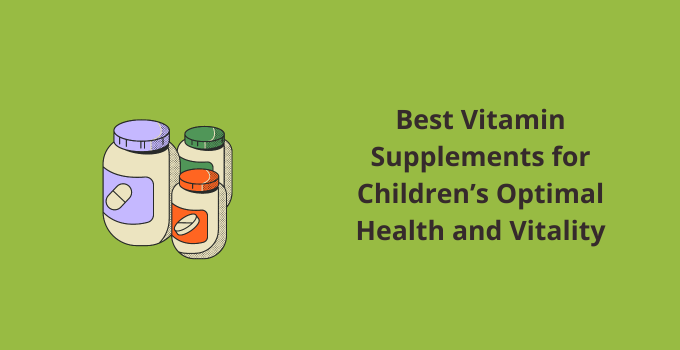Vitamins are essential for children’s growth and development, providing necessary nutrients that support cognitive function, immune health, and energy production. Children who receive the right balance of vitamins like D, C, and omega-3 fatty acids experience improved brain health, stronger immunity, and enhanced vitality. This guide explores the best vitamin supplements to ensure children receive all the necessary nutrients for optimal health and well-being, helping parents make informed decisions for their child’s long-term wellness.
Why Are Vitamins Essential for Children’s Health and Development?
Vitamins are essential for children’s health and development because they provide the necessary nutrients needed for growth, energy production, and the maintenance of various bodily functions.
They lay the foundation for a healthy start, filling any nutritional gaps that might arise from a less than ideal diet.
Vitamins such as A, C, and D are pivotal for development milestones, including healthy skin, vision, and immune function.
Vitamins also act as energy boosters, with B vitamins aiding in metabolism and energy production.
For example, Vitamin B12 supports energy metabolism, while Vitamin D is fundamental for bone and tooth formation.
Ensuring your child gets these vitamins helps them meet their daily nutritional needs, supporting overall health and development, especially in cases where their diet may be lacking.
What Are the Specific Vitamin and Mineral Requirements for Children?
When considering the specific vitamin and mineral requirements for children, it’s vital to understand the varying needs based on age.
For instance, children aged 1-3 years require 700 mg of calcium and 7 mg of iron daily, while those aged 4-8 years need 1,000 mg of calcium and 10 mg of iron.
Vitamin D is another critical nutrient, with recommended daily intakes of 600 IU (15 mcg) for children across various age groups, including infants and young children who may need supplements, especially if they’re breastfed or don’t consume enough fortified formula.
Additionally, vitamins A and C are essential, with children aged 4-8 years needing 400 mcg of vitamin A and 25 mg of vitamin C daily, which can be obtained from foods like carrots, sweet potatoes, and citrus fruits.
What Are the Recommended Daily Intakes by Age Group?
To guarantee your child’s peak growth and health, it’s essential to understand the specific vitamin and mineral requirements that vary by age.
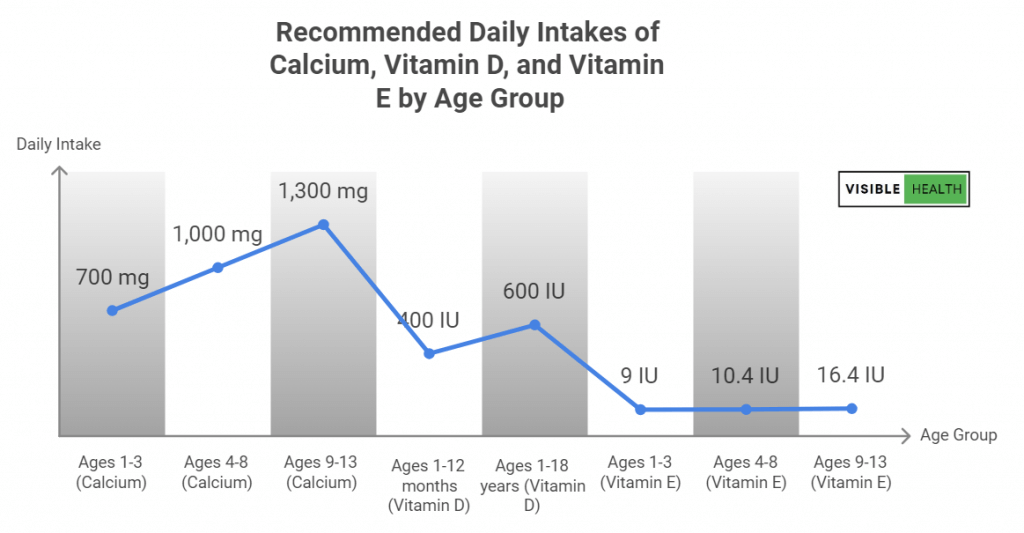
Daily Needs and Age-Specific Requirements
Children’s daily needs for vitamins and minerals change as they grow.
For example, kids aged 1-3 need 700 mg of calcium, while those aged 4-8 require 1,000 mg, and those aged 9-13 need 1,300 mg.
Vitamin D and Other Essentials
Vitamin D is essential for bone health; children aged 1-12 months need 400 IU daily, while toddlers, older children, and adolescents require 600 IU.
Vitamin E requirements also vary: ages 1-3 need 9 IU, ages 4-8 need 10.4 IU, and ages 9-13 need 16.4 IU.
Nutritional Deficiencies and Dietary Gaps
Children who are breastfed or have restrictive diets may face nutritional deficiencies.
For instance, breastfed infants need a daily vitamin D supplement of 400 IU from birth.
Ensuring these age-specific requirements are met helps fill dietary gaps and prevent nutritional deficiencies.
Which Vitamins Are Most Important for Children’s Growth and Development?
When considering the vital vitamins for children’s growth and development, you should focus on Vitamin A, Vitamin C, Vitamin D, and the B Vitamins.
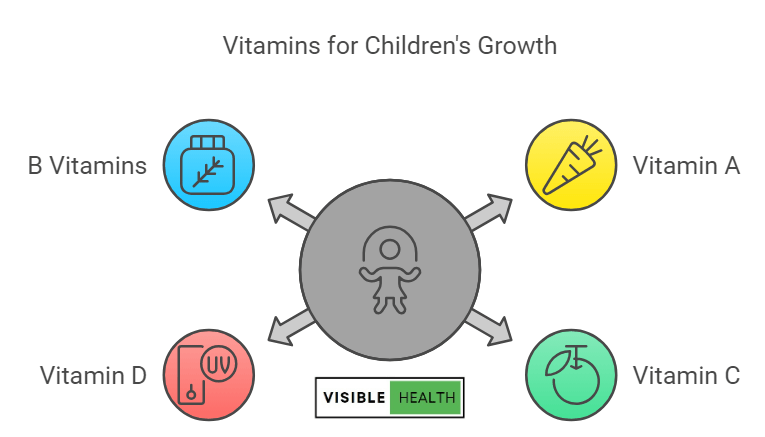
- Vitamin A is pivotal for normal growth, tissue and bone repair, and healthy skin, eyes, and immune responses, with good sources including milk, cheese, eggs, and yellow-to-orange vegetables like carrots and squash.
- Vitamin C is essential for general health and the immune system, aiding in iron absorption, and can be found in foods such as oranges, kiwi fruit, strawberries, and broccoli.
- Vitamin D, primarily obtained through sunlight and found in foods like fatty fish and fortified cereals, is indispensable for bone and tooth formation and calcium absorption.
- The B Vitamins, including B2, B3, B6, and B12, support metabolism, energy production, and healthy circulatory and nervous systems, with sources like meat, chicken, fish, nuts, and dairy products.
What Forms Do Vitamin Supplements Come In?
When it comes to choosing vitamin supplements for your child, you have several forms to contemplate, each with its own advantages and suitability for different ages and preferences.
Vitamin Gummies are a popular choice, especially for younger children, as they’re easy to chew and often come in flavors that kids enjoy.
For example, SmartyPants and Garden of Life offer gummy vitamins that are non-GMO and free from artificial flavors and colors.
Chewable Tablets are another option, providing a solid form that’s still palatable for children.
These are often used for older kids who can safely chew them.
Powdered Mix can be added to food or drinks, making it a good choice for picky eaters or those who’ve trouble with solid forms.
Products like Head Start Multivitamin Powder and Klaire Labs VitaSpectrum Powder fall into this category.
Liquid Shots and Vitamin Drops, such as those recommended for infants and young children, are convenient for daily supplementation, especially for vitamins like vitamin D.
Vitamin Capsules, though less common for young children, are available for older kids and teens, offering a more traditional supplement form.
What Are the Best Recommended Brands and Products?
When selecting the best vitamin supplements for your children, several brands and products stand out for their quality and nutritional value.
For younger children, Zarbee’s Complete Toddler Multivitamin, formulated for ages 2 to 3 years, is a highly recommended option, offering essential vitamins and minerals in easy-to-chew gummies made from natural ingredients.
For older children, brands like Ritual Essentials for Kids Multivitamin 4+ and Garden of Life mykind Organics Kids Multi are popular choices.
Ritual’s multivitamin gummies, designed for children aged 4 and up, include key nutrients like omega-3 DHA, zinc, and vitamins D and C.
Garden of Life’s organic multivitamins, suitable for children aged 4 and older, provide a blend of vitamins and minerals from whole food ingredients and are free from common allergens and additives.
Other notable options include Hiya Kids Multivitamin, known for its vegan and sugar-free formula, and Llama Naturals, which offers organic and plant-based vitamins starting from age 2.
These products guarantee your child receives the necessary nutrients to support healthy growth and development.
1. Baby Multi Vitamin Organic Drops, 1 oz
Baby multivitamin drops are a popular and convenient option for the parents seeking to guarantee their infants and toddlers receive essential nutrients.
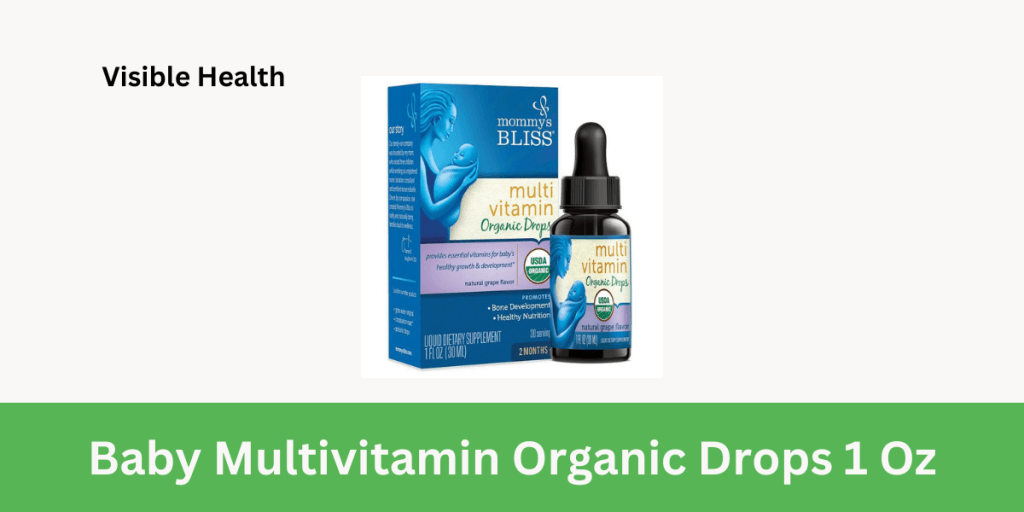
These drops, such as those from Wellements, are made with organic ingredients like organic agave syrup, organic emblic extract, and organic sunflower seed oil, ensuring a natural and safe supplement for your child.
Incorporating these drops into your daily routine is straightforward, thanks to their baby-friendly packaging and easy-to-use dropper design.
It’s advisable to consult with your pediatrician before adding any supplements to your child’s diet.
Wellements Organic Multivitamin Drops, for example, come in a cherry flavor and are certified organic, gluten-free, and free from artificial colors and flavors, making them a trusted choice for many parents.
With 30 servings in a 1 oz bottle, these drops support healthy growth, bone development, and immunity.
2. Ayer Liquid Multi-Vitamin Supplement Drops for Infants & Children
Ayer Liquid Multi-Vitamin Supplement Drops are a highly recommended option for infants and children, offering an exhaustive blend of essential vitamins and minerals in a convenient liquid form.
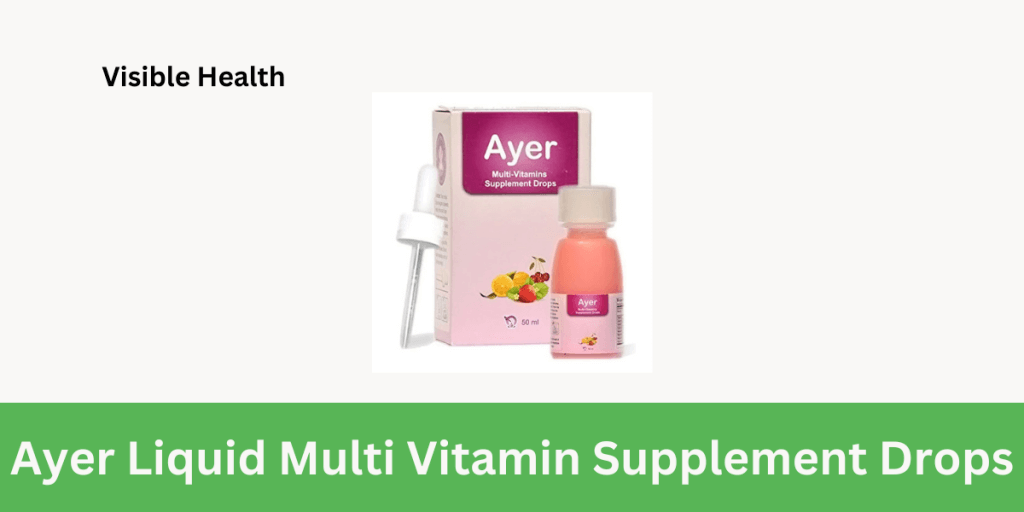
These drops contain vitamins C, D, E, and B-complex vitamins, including thiamin, niacin, vitamin B6, pantothenic acid, and vitamin B12, ensuring easy absorption and quick results.
They are particularly beneficial for picky eaters and children with special needs, as they can be administered directly into the mouth or mixed with formula, fruit juice, or cereal.
This makes infant care simpler, especially for those struggling to meet their nutritional needs through diet alone.
With a high bio-availability formula, these drops support overall health, immune function, and energy levels, making them an excellent choice for parents seeking a reliable vitamin supplement.
3. Kids Multi-Vitamin & Mineral Liquid, Mighty Vita-Kids
The Tropical Oasis Kids Multi-Vitamin Liquid is a standout choice, designed to support healthy habits in kids. This kid-friendly liquid multivitamin contains a blend of essential vitamins (A, C, D, E, and B-complex) and minerals (calcium and magnesium), making it easy for children to get a nutrient boost.
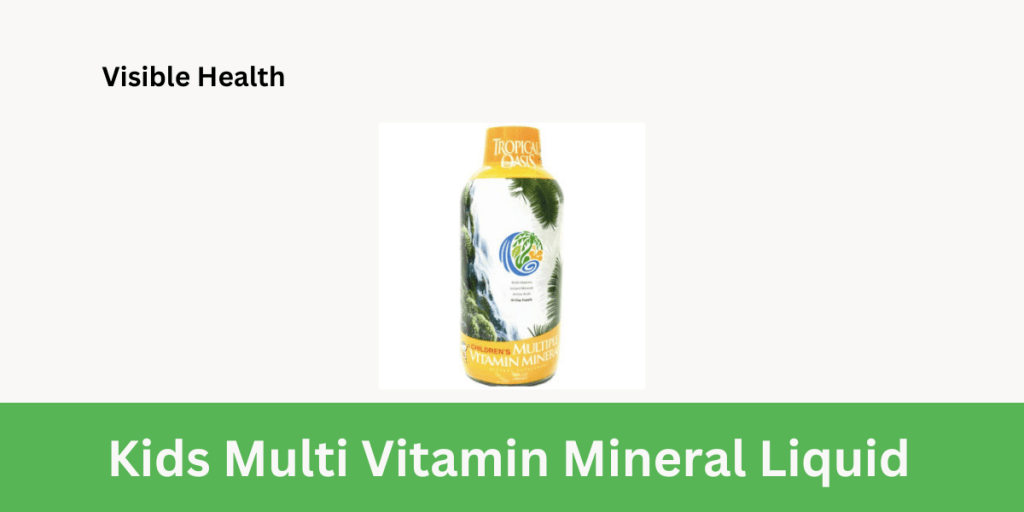
To incorporate this into your daily routine, follow the recommended dosage and consult with your healthcare provider for parental guidance.
Mix it with food or drinks to guarantee it’s part of a consistent daily regimen. This supplement aids in immune function, promotes healthy growth, and supports energy production, helping to fill common nutritional gaps in children’s diets.
4. Kirkland Signature Children’s Complete Multivitamin Gummies, Kids Chewable Vitamins,
Kirkland Signature Children’s Complete Multivitamin Gummies stand out as a highly recommended option when considering vitamin supplements for your children.
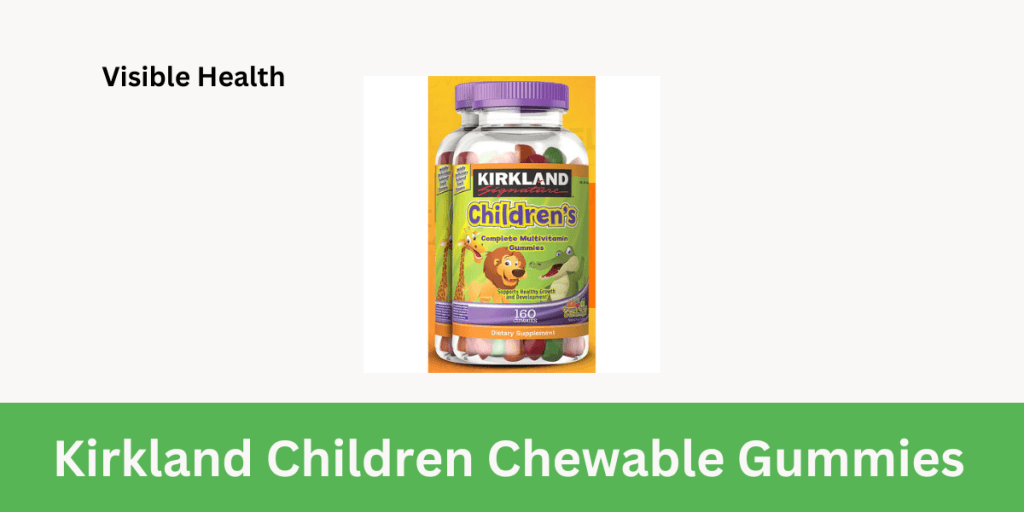
These gummies are designed to support the nutritional needs of children, providing over 10 essential vitamins and minerals, including Vitamin A, C, D, E, and several B vitamins, along with minerals like zinc and iodine[3,.
Parent preferences often lean towards these gummies due to their natural fruit flavors in orange, cherry, and green apple, making them enjoyable for kids to take.
This helps in establishing healthy habits and ensuring better nutrient absorption. For vitamin safety, it’s vital to follow the recommended dosage: one gummy for children 2-3 years old and two gummies for those 4 years and older, all under adult supervision.
These gummies support immune function, bone development, and overall growth, filling nutritional gaps in a child’s diet effectively.
5. mykind Organics Kids Multi Organic Fruit + Vitamins Gummy Bears
mykind Organics Kids Multi Gummies are a standout option, if you’re looking for an organic and vegan-friendly alternative to traditional children’s multivitamins.
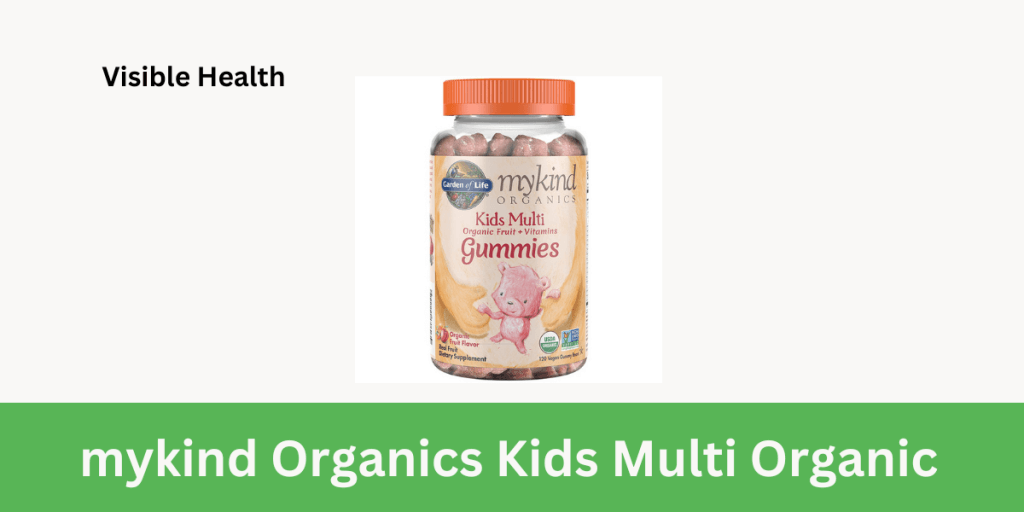
These gummies are made with natural ingredients, including organic fruit extracts like apple, cherry, and strawberry, and essential vitamins such as A, C, D, E, and B vitamins.
They’re free from artificial colors, flavors, and preservatives, making them a healthy snack for kids.
With their gummy texture and delicious fruit flavors, these vitamins are both enjoyable and nutritious.
Certified USDA Organic and Non-GMO Project Verified, these gummies support children’s immune systems, promote healthy growth, and enhance energy levels.
Recommended for children aged 4 and older, take two gummies daily for peak benefits.
What Are the Appropriate Dosages for Children’s Vitamin Supplements?
When determining the appropriate dosages for children’s vitamin supplements, it’s vital to ponder the child’s age, sex, size, and specific health needs.
For example, the recommended dietary intake (RDI) of calcium for children ranges from 700 mg per day for 1-3 year olds to 1,000 mg per day for 4-8 year olds, while the RDI for vitamin D is 600 IU (15 mcg) per day for most age groups, increasing to 600 IU per day for adolescents.
There are risks associated with vitamin supplementation in children, such as toxicity from excessive intake of vitamins A and D, and iron, which can lead to severe hypercalcaemia, hypercalciuria, or nephrocalcinosis in the case of vitamin D, and other adverse effects like muscle weakness and bleeding with very high doses of vitamin E.
It is also important to select supplements that are free from common allergens and are formulated specifically for children, guaranteeing they meet the necessary nutritional standards without posing additional health risks.
Are There Any Risks Associated with Vitamin Supplementation in Children?
Vitamin supplementation in children, while often necessary, carries several risks if not managed properly.
One of the primary concerns is vitamin overload, where excessive intake of vitamins can be toxic and interfere with the absorption of other nutrients.
It is vital to seek pediatric guidance before giving your child any supplements, as they can interact with medications, leading to adverse reactions.
For example, St. John’s wort can affect the metabolism of drugs like warfarin and digoxin, while ginkgo can increase the risk of bleeding when taken with NSAIDs.
Additionally, supplement regulations are lax, meaning many products aren’t thoroughly tested for safety and effectiveness in children.
This lack of regulation increases the risk of mislabeled products containing harmful chemicals or incorrect ingredient amounts.
Always choose supplements certified by reputable organizations and consult with your child’s doctor to mitigate these risks.
Are There Any Child Vitamin Supplements That Are Free From Common Allergens?
For parents seeking to avoid common allergens in their child’s vitamin supplements, there are several options available that cater to these needs.
Allergy-friendly options like MaryRuth’s Organics and Zarbee’s Naturals offer hypoallergenic formulas that are free from the top 8 allergens, including peanuts, tree nuts, gluten, soy, dairy, eggs, fish, and shellfish.
These brands provide nut-free vitamins and soy-free supplements, ensuring safety for children with severe allergies.
Brands such as Renzo’s and Gummi King also offer gluten-free multivitamins that are manufactured in allergen-free facilities.
SmartyPants Vitamins are another option, free from milk, eggs, wheat, fish, and soy, making them suitable for children with multiple allergies.
These supplements are carefully formulated to meet nutritional needs while minimizing the risk of allergic reactions.
How Do Probiotic Supplements Benefit Children?
Probiotic supplements can offer several potential benefits for children, particularly those experiencing digestive issues.
These benefits include enhancing gut health by promoting a balanced microbiome, which is vital for overall health. A diverse microbiome helps in maintaining digestive comfort, reducing symptoms of constipation, irritable bowel syndrome, and diarrhea.
Probiotics also support the immune system by balancing out bad bacteria and helping to prevent infections.
For example, certain strains like Lactobacillus rhamnosus and Bifidobacterium lactis can aid in digestion and reduce the side effects of antibiotics.
Additionally, probiotics may play a role in preventing autoimmune diseases and allergies, and even in maintaining a healthy weight.
However, it’s important to consult a pediatrician to identify the right probiotic strain and dosage for your child, as these supplements aren’t regulated by the FDA.
Affiliate Disclosure: Some of the links in this post are affiliate links, which means I may earn a small commission if you make a purchase through those links. This comes at no extra cost to you. Thank you for your support!

